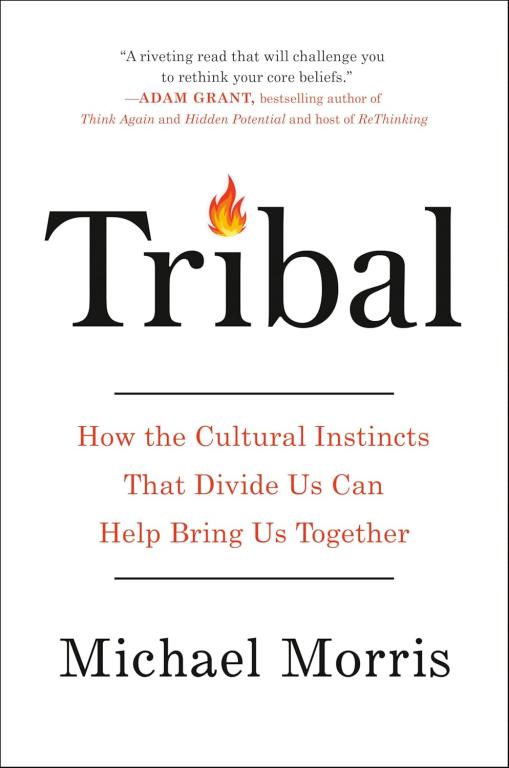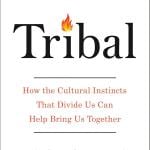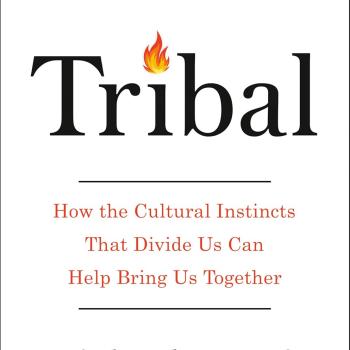
Michael Morris’s Tribal: How the Cultural Instincts That Divide Us Can Help Bring Us Together offers penetrating insights into the forces that shape human communities. His book resonates well in today’s society, revealing how our underlying instincts can both fracture and unite us. What about the church though?
By examining these instincts—reframed here as prevalence, prestige, and precedence—we see that Morris is fundamentally exploring honor-shame dynamics. (See my first post for an overview of the book.)
These concepts provide a framework not only for understanding societal divisions but also for addressing the challenges faced by communities, including the church. In this post, we will consider the significance of these insights, especially as they apply to the church, emphasizing the need to leverage these instincts for positive transformation.
Prevalence: Belonging as a Cornerstone of Community
The prevalence instinct— the drive to conform to the norms of one’s community—is a powerful force in human social behavior. It speaks to the need to belong, to fit in, and to be part of a group that validates one’s identity. This instinct is fundamentally about creating a sense of safety through shared practices and beliefs.
For the church, prevalence is an inclination that can either be a strength or a stumbling block, depending on how it is managed. In positive terms, prevalence allows the church to foster a deep sense of community. When the church establishes shared norms, values, and traditions that are inclusive and grace-filled, it helps individuals feel welcomed and accepted.
This communal spirit reflects the early Christian community described in Acts 2:44-47, where believers came together, shared their possessions, and supported one another. The instinct for prevalence helps create a cohesive body where members see themselves as part of something larger, providing a sense of stability and purpose.
However, the prevalence instinct can also lead to exclusion when the norms become rigid and alienating to those who are different. Churches that overemphasize conformity at the expense of grace can end up reinforcing barriers, making those who do not fit the mold feel unwelcome or unworthy.
This overemphasis is particularly problematic when it comes to cultural or social differences, as rigid norms can lead to the formation of in-groups and out-groups within the church. To harness the prevalence instinct effectively, churches must cultivate norms that are not only rooted in biblical truth but also flexible enough to include diverse ways of thinking and life experiences.
Prestige: Elevating Service over Status
The prestige instinct— the desire for respect and recognition— is also deeply embedded in human nature. It’s the drive that pushes individuals to contribute meaningfully, earn the esteem of others, and make a name for themselves.
In a church context, this instinct can be a double-edged sword. On the one hand, prestige can inspire individuals to serve, take on leadership roles, and use their gifts to benefit the community. On the other hand, if misdirected, it leads to pride, competition, and abuse of power.
The Bible offers numerous examples of how prestige can be both virtuous and dangerous. Jesus’ disciples often struggled with their desire for prestige, as seen in their debates about who among them was the greatest (Mark 9:34). Jesus’ response—that the greatest must be the servant of all—radically redefines prestige.
In the church, the prestige instinct should be directed towards service, humility, and the pursuit of God’s kingdom rather than personal glory. Pursued in this way, prestige becomes a powerful motivator for good, encouraging individuals to invest their talents and energies in ways that uplift the entire community.
The challenge for the church lies in creating a culture where prestige is tied to service rather than status. Too often, churches fall into the trap of elevating charismatic leaders or rewarding visible forms of ministry while neglecting the quieter acts of service that are equally vital.
By redefining prestige in terms of Christ-like humility and sacrificial love, the church can cultivate an environment where all members, regardless of their role, feel valued and respected. This approach not only honors the contributions of each individual but also guards against the sort of competition and ambition that breeds division.
Precedence: Honoring Tradition while Embracing Change
The precedence instinct— the respect for tradition and the wisdom of past generations —is another key component of human society. This instinct gives individuals a sense of identity and continuity. It anchors them in a story that stretches beyond their individual lives.
For the church, precedence is essential, as it connects believers to the rich history of faith that has been passed down through centuries. It provides a sense of rootedness, reminding the church of its foundations in the teachings of Christ and the apostles.
Tradition plays a vital role in shaping the identity of the church, offering a framework for worship, doctrine, and community life. The precedence instinct encourages believers to honor the practices and beliefs that have sustained the church through generations.
However, the inclination for precedence can also become problematic when it leads to an unyielding adherence to tradition at the expense of growth and relevance. Churches that resist change out of a desire to protect tradition may find themselves struggling to connect with new generations or address contemporary issues effectively.
The key for the church is to strike a balance between honoring tradition and embracing change. The precedence instinct should not be about rigidly preserving the past but about drawing on the wisdom of tradition to inform the present and guide the future.
This means being open to new ways of worship, new forms of ministry, and new expressions of faith that resonate with today’s world while remaining anchored in the core truths of the gospel. By doing so, the church can ensure that precedence serves as a source of strength rather than a barrier to growth.
Honor and Shame in the Church Context
The instincts of prevalence, prestige, and precedence are fundamentally about honor and shame— dynamics that are deeply embedded in both society and the church. Prevalence speaks to the honor of belonging, the sense of being part of a group that shares common values and practices.
 Prestige is about the honor that comes from contributing meaningfully and being recognized for one’s efforts. Precedence is about the honor of continuity, of being part of a tradition that stretches back through time. These honor-shame dynamics can either build up the church or tear it apart, depending on how they are navigated.
Prestige is about the honor that comes from contributing meaningfully and being recognized for one’s efforts. Precedence is about the honor of continuity, of being part of a tradition that stretches back through time. These honor-shame dynamics can either build up the church or tear it apart, depending on how they are navigated.
When the church leverages these instincts positively, it creates an environment where people feel a deep sense of belonging, purpose, and identity. Prevalence fosters a culture of inclusion, prestige encourages sacrificial service, and precedence connects believers to the larger story of God’s work in the world.
However, when misdirected, these instincts lead to exclusion, competition, and stagnation. The church must therefore be intentional in how it cultivates its culture, ensuring that honor is extended to all and that shame is not used as a tool for control or exclusion.
The Church’s Role in Healing Divisions
Morris’s insights into human instincts offer a valuable lens through which to view the challenges facing the church today. In a world that is increasingly divided along cultural, political, and social lines, the church has the opportunity to model a different way of being—one that draws on the best of prevalence, prestige, and precedence to bring people together.
By understanding these instincts and using them to foster a culture of grace, humility, and inclusion, the church can become a place where people from all walks of life feel valued and connected.
The prevalence instinct can be harnessed to create a culture of radical hospitality, where all are welcomed regardless of their background. The prestige instinct can be directed towards acts of service that uplift the community and reflect Christ’s love. The precedence instinct can be used to honor the past while embracing the future, ensuring that the church remains both rooted and relevant. By engaging these instincts in constructive ways, the church can play a pivotal role in healing divisions and building a society that reflects the values of God’s kingdom.
In conclusion, the instincts of prevalence, prestige, and precedence are powerful forces that shape human behavior and community life. Tribal’s insights into these instincts provide a valuable framework for understanding both the challenges and the opportunities facing the church today.
By leveraging these instincts for good, the church can foster a culture of belonging, service, and continuity that brings people together and points them toward the hope and healing found in Christ.













